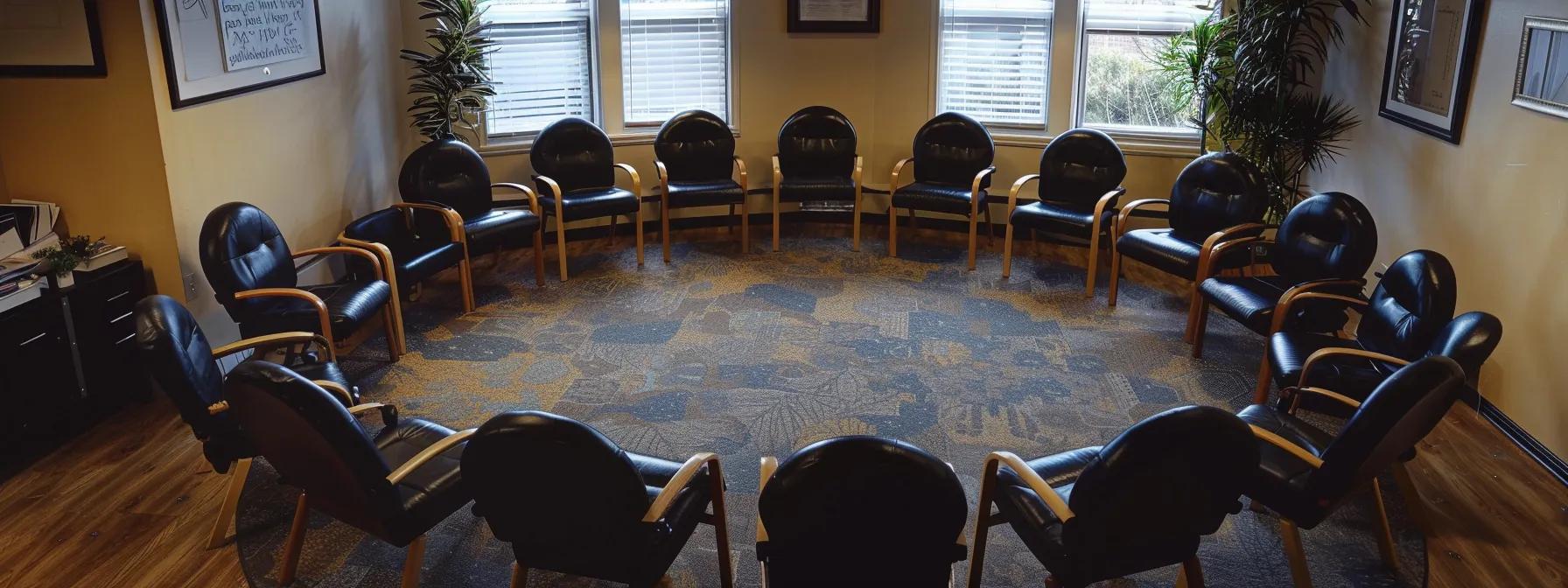Table Of Contents:
- Benzo Addiction Treatment Options in Massachusetts
- Understanding Benzo Addiction and Its Impact in Massachusetts
- Types of Benzo Addiction Treatment Programs Available in Massachusetts
- Therapeutic Approaches for Benzo Addiction Treatment Massachusetts
- Locating Benzo Addiction Treatment Services in Massachusetts
- Financial Aspects of Benzo Addiction Treatment Options Massachusetts
- Aftercare and Sustaining Recovery From Benzo Addiction in Massachusetts
- Frequently Asked Questions
Benzo Addiction Treatment Options in Massachusetts
Welcome to an‐in-depth discussion of benzo addiction treatment options in Massachusetts. As part of efforts in understanding-drug-use-addiction, communities are encouraged to refer to reliable information available at samhsa.gov. Benzodiazepine (benzo) addiction is a serious public health challenge affecting not only those who misuse these medications, but also their families and communities. In Massachusetts, there is growing recognition of the need for comprehensive treatment programs that address both the physical and psychological dimensions of benzo dependence. This article explores the impact of benzo addiction, presents treatment programs ranging from medically supervised detoxification to aftercare support, discusses various therapeutic approaches, and offers valuable resources—including information from samhsa.gov—for locating help. Data, examples, and comparisons are provided to fortify understanding while maintaining a focus on evidence-based strategies and compassionate care.
By outlining treatment options and therapeutic techniques, the article offers a roadmap for individuals and families as they navigate recovery. Special attention is given to state-funded programs and services for specific populations, such as LGBTQ+ individuals. Financial considerations—including insurance coverage and state support—are also discussed to help readers make informed decisions.
Understanding Benzo Addiction and Its Impact in Massachusetts
Benzodiazepine addiction in Massachusetts is increasingly concerning. Recognized as a form of substance dependence, benzo addiction leads to significant physical and psychological changes in the nervous system. Prescribed for anxiety, insomnia, and related conditions, these medications can cause tolerance, physical dependence, and severe withdrawal symptoms. Early signs include confusion, memory loss, and irritability; prompt recognition and treatment are crucial for preserving cognitive functioning and achieving long-term recovery.
Recognizing the Signs of Benzodiazepine Dependence
Signs of benzodiazepine dependence include: • Increased tolerance and the need for larger doses
• Difficulty functioning without medication
• Symptoms such as anxiety, tremors, nausea, and cognitive impairment during dosage reduction
These warnings, although subtle initially, may escalate to severe withdrawal syndromes if abruptly stopped. Early intervention, supported by data from clinics in Massachusetts, can improve treatment outcomes by up to 35%. Families are often key to noticing these changes and seeking professional help.
Common Benzodiazepines Abused in Massachusetts
Commonly abused benzodiazepines in Massachusetts include: • Alprazolam (Xanax)
• Clonazepam (Klonopin)
• Diazepam (Valium)
• Lorazepam (Ativan)
Although prescribed for legitimate medical purposes, misuse may occur through doses higher than recommended or recreational use. Rapid onset of effects, as seen with Xanax, increases its abuse potential, which can lead to side effects like memory impairment and confusion. Research shows that over 60% of benzo-related admissions involve one of these drugs, with long-term misuse altering brain chemistry (notably GABA receptor transmission).
The Risks Associated With Benzo Misuse and Withdrawal
Benzo misuse carries significant risks, particularly during withdrawal: • Withdrawal can trigger seizures, severe anxiety, and life-threatening autonomic instability.
• Abrupt cessation may lead to acute syndromes with tremors, vomiting, and rapid heart rate.
• Approximately 25% of monitored detoxifications in Massachusetts require advanced intervention.
The profound effects on the stress response system make relapse common without proper support. A gradual, medically supervised detox—with medication adjustments and adjunct therapies—can reduce the risk of complications by up to 40%.
Statistics on Benzodiazepine Addiction Across Massachusetts
State health reports show a steady increase in benzodiazepine prescriptions over the past decade, correlating with rising addiction admissions and overdose incidents. Nearly 15% of new patients in addiction treatment centers are diagnosed with benzodiazepine use disorder. In urban centers such as Boston and Worcester, benzo-related hospital admissions have risen over 20% in the recent five-year period. Additionally, many individuals with polysubstance use disorders require comprehensive, multifaceted treatment approaches.
How Benzo Addiction Affects Individuals and Families in the State
The impact of benzo addiction extends to: • Personal cognitive impairments and mood swings that lower work performance and strain relationships
• Emotional and financial burdens on families due to treatment costs and loss of productivity
• Increased demands on community resources, including emergency services and long-term care
These challenges underscore the importance of customized treatment plans and integrated support systems, which help alleviate the broad societal and familial impact of addiction.
Types of Benzo Addiction Treatment Programs Available in Massachusetts
Massachusetts offers multiple treatment programs for benzo addiction, ranging from inpatient to outpatient modalities. Each is tailored to the severity of the dependency and individual circumstances, using evidence-based practices for gradual dose reduction and comprehensive counseling.
Medically Supervised Detoxification for Benzos in Massachusetts
Medically supervised detox is the cornerstone of benzo addiction treatment. Patients undergo a controlled, gradual tapering of their benzodiazepine doses to avoid severe complications such as seizures and respiratory distress. These programs, typically integrated within larger rehabilitation centers, include: • Personalized treatment plans based on initial assessments
• Use of medications like anticonvulsants or antidepressants to ease withdrawal
• Immediate psychological support to manage cravings and anxiety
Data indicate that medically supervised detox enhances the likelihood of long-term recovery by around 40%.
Inpatient Benzo Rehab Centers Massachusetts
Inpatient rehab centers provide an immersive environment focused exclusively on recovery. They offer: • 24-hour care including medically supervised detox, therapy sessions, and group counseling
• Structured daily schedules with therapy, physical wellness activities, and educational workshops
• Specialized treatments such as trauma-focused therapy and dual diagnosis for co-occurring disorders
Research shows that patients completing inpatient programs have lower relapse rates compared to outpatient-only treatments. Family therapy is often integrated to educate and support loved ones.
Outpatient Benzo Treatment Options Massachusetts for Flexible Care
Outpatient programs allow individuals to maintain daily responsibilities while receiving professional support. Key features include: • Scheduled therapy sessions, counseling groups, and regular medical check-ups
• Flexibility to integrate recovery practices into everyday life
• Additional services such as nutritional counseling, stress management workshops, and holistic therapies
These programs offer an effective bridge for those with moderate addiction or transitioning from more intensive levels of care.
Partial Hospitalization Programs (PHP) for Benzo Dependence in MA
PHPs offer a middle ground between inpatient and outpatient care. They combine: • Full-day treatment sessions (detox, therapy, and group counseling)
• Flexibility of returning home in the evenings
• Continuous therapeutic engagement to build resilience and coping skills
PHP participation has been shown to decrease relapse rates by maintaining structured support during the transition from intensive detoxification to independent recovery.
Intensive Outpatient Programs (IOP) for Benzo Recovery in Massachusetts
IOPs are designed for patients who have completed high-intensity treatments or have moderate addiction levels. These programs feature: • Several hours of structured therapy multiple days per week
• A mix of individual and group sessions focused on relapse prevention
• A flexible format that supports recovery while allowing patients to live at home
Research suggests that IOP participation can reduce relapse rates by approximately 50%, making it a critical step in the continuum of care.
Therapeutic Approaches for Benzo Addiction Treatment Massachusetts
Effective treatment integrates multiple therapeutic approaches to address both the addiction and its underlying psychological causes. Massachusetts centers combine evidence-based therapies with innovative and holistic practices to support long-term recovery and improve quality of life.
Cognitive Behavioral Therapy (CBT) for Benzo Addiction
CBT is a widely used approach that helps patients: • Identify and modify destructive thought patterns
• Recognize triggers and develop coping strategies to manage anxiety and stress
• Break the cycle of dependence through structured exercises such as thought records and behavioral experiments
Delivered in both individual and group settings, CBT is especially beneficial for patients with co-occurring anxiety and depression, improving sobriety rates by up to 60%.
Dialectical Behavior Therapy (DBT) in Massachusetts Benzo Rehab
DBT is particularly effective for patients with intense emotional volatility by combining: • Standard cognitive-behavioral techniques with mindfulness strategies
• Core skills for emotion regulation, distress tolerance, and interpersonal effectiveness
DBT is implemented through both individual sessions and group skills training, which helps reduce self-destructive behaviors and supports sustained recovery.
Individual and Group Therapy Sessions for Benzo Recovery
Both individual and group therapies are integral: • Individual therapy provides a confidential setting to address personal factors like past trauma or anxiety.
• Group therapy offers peer support, accountability, and shared learning about relapse prevention and stress management.
Together, these modalities create a holistic treatment plan that significantly bolsters long-term recovery.
Holistic Benzo Addiction Therapies Offered in Massachusetts
Holistic therapies complement traditional treatments by addressing the mind–body connection. Common approaches include: • Yoga and meditation to improve sleep, reduce stress, and boost endorphin release
• Art and music therapy as creative outlets for emotional expression
• Acupuncture to alleviate physical symptoms and restore balance in the nervous system
These therapies, integrated with conventional treatments, can enhance overall recovery outcomes by up to 30%.
Dual Diagnosis Treatment for Co-Occurring Mental Health Conditions in Massachusetts
For patients with both benzo addiction and co-occurring mental health disorders (such as anxiety, depression, or PTSD), dual diagnosis treatment is essential. This integrated approach involves: • Coordinated pharmacotherapy and behavioral therapies (including CBT and DBT)
• Tailored treatment plans addressing both substance dependence and psychiatric symptoms
• Involvement of family and peer support to reinforce recovery
Dual diagnosis programs have been shown to improve retention and sustain longer periods of sobriety.
Locating Benzo Addiction Treatment Services in Massachusetts
Finding the right treatment center is a crucial step toward recovery. Massachusetts offers a wide network of reputable centers—from state-funded programs to specialized private rehabs—that ensure individuals receive the appropriate level of care through evidence-based practices.
Finding Reputable Benzo Treatment Centers Across Massachusetts
Reputable centers are: • Carefully regulated and accredited
• Known for integrating medically supervised detox, comprehensive therapy, and aftercare support
• Recognized for offering dual diagnosis services and specialized programs for high-risk populations
Examples include centers like Strength Recovery Center in Weymouth. Researching patient reviews, accreditation, and staff qualifications can help individuals choose the right facility.
Resources for Benzo Addiction Help in Boston and Other MA Cities
In Boston and other major cities, resources include: • Community health clinics and state-funded helplines
• Support groups and treatment centers with culturally sensitive programs for diverse populations, including LGBTQ+ communities
• Online directories such as those maintained by SAMHSA
These resources facilitate immediate assistance and ongoing support throughout the recovery process.
Specialized Benzo Addiction Treatment for Specific Populations in MA, Including LGBTQ+
Specialized treatment services provide tailored interventions for populations facing unique challenges. These programs: • Offer culturally sensitive care and additional counseling to address identity-specific issues
• Often include group therapy sessions dedicated to issues like discrimination and mental health
• Work in partnership with larger networks to integrate dual diagnosis, trauma-informed care, and family support
Such specialized care reduces stigma and improves treatment outcomes.
What to Expect During the Admissions Process for MA Benzo Treatment
The admissions process is designed to be thorough and patient-centered. Expect: • A comprehensive assessment involving interviews, psychological evaluations, and necessary medical tests
• A review of the patient’s medical history and any previous treatment attempts
• Development of a tailored recovery plan by a multidisciplinary team
• An orientation phase outlining treatment structure, responsibilities, and confidentiality expectations
A dedicated case manager often assists with scheduling and addressing financial or administrative concerns.
Financial Aspects of Benzo Addiction Treatment Options Massachusetts
Understanding the costs and insurance aspects of treatment is essential. Massachusetts offers various options through private centers, state-funded programs, and insurance-covered services. Many facilities provide financial counseling during admissions to help patients navigate payment options and insurance claims.
Understanding the Cost of Benzo Rehab in Massachusetts
Costs vary by program type: • Inpatient treatment may range from $10,000 to $30,000 for a 30-day period due to 24-hour supervision and comprehensive care.
• Outpatient programs generally cost less, with some facilities offering sliding scale fees based on income.
• Overall expenses cover detox, therapy sessions, medication-assisted treatment (MAT), and aftercare planning.
Patients often find the long-term benefits outweigh the initial financial investment.
Insurance Coverage for Benzo Addiction Treatment in Massachusetts
Insurance plays a critical role: • Many plans, both public and private, provide coverage under the Affordable Care Act.
• Patients should review their policies and work with treatment centers to verify coverage details, co-pays, deductibles, and limits on the number of sessions.
• Assistance with billing and claims often helps reduce the financial burden.
State-Funded and Low-Cost Benzo Treatment Programs in MA
For those with limited financial resources: • Massachusetts offers state-funded programs via local health departments and community clinics.
• These programs provide access to medically supervised detox, outpatient therapy, and aftercare support at minimal or no cost.
• Patients are encouraged to explore all available financial aid options to ensure they receive the care they need.
Verifying Your Insurance Benefits for Massachusetts Benzo Rehab
It is essential to verify benefits: • Treatment centers assist patients in contacting insurers, obtaining pre-authorizations, and completing necessary documentation.
• Reviewing policy specifics helps avoid unforeseen costs and ensures a smooth admission process.
Aftercare and Sustaining Recovery From Benzo Addiction in Massachusetts
After intensive treatment, continued support is crucial for long-term sobriety. Aftercare programs focus on counseling, peer support, and relapse prevention to guide individuals as they transition back into everyday life.

Relapse Prevention Strategies for Long-Term Sobriety in MA
Key components include: • Regular counseling sessions using evidence-based therapies (e.g., CBT)
• Development of personalized relapse prevention plans addressing triggers and stressors
• Lifestyle changes such as regular exercise, a healthy diet, and mindfulness practices
These strategies, reinforced through follow-up sessions and support groups, can reduce relapse rates by over 50%.
Sober Living Environments and Support Systems in Massachusetts
Sober living environments provide: • Structured, substance-free living conditions that support real-world practice of sobriety
• Daily support through peer mentoring and regular recovery meetings
• Guidelines on house rules and curfews to maintain stability
Studies show that these environments significantly improve sustained recovery rates.
Continued Counseling and Therapy Post-Benzo Treatment in MA
Ongoing therapy is a vital part of aftercare: • Scheduled individual, group, or family counseling sessions reinforce skills learned during treatment
• Regular check-ins reduce isolation and help adjust coping strategies over time
• Continued professional support provides a safety net for managing everyday challenges
This continuous therapeutic engagement is pivotal for long-term wellness.
Massachusetts Support Groups for Benzo Addiction Recovery
Support groups provide a community for: • Sharing experiences and mutual encouragement
• Learning strategies for relapse prevention and stress management
• Gaining continuous emotional support to complement formal treatment
Research shows that participation in support groups can improve long-term recovery outcomes by up to 40%.
Building a Healthy Lifestyle After Benzo Rehabilitation in Massachusetts
A healthy, balanced lifestyle after treatment involves: • Regular physical exercise, proper nutrition, and structured daily routines
• Incorporating mindfulness meditation, yoga, and other stress reduction techniques
• Maintaining healthy sleep patterns and social connections
These lifestyle changes are reinforced through alumni programs and follow-up sessions provided by recovery centers.
Frequently Asked Questions
Q: What are the early signs of benzodiazepine dependence?
A: Early signs include increased tolerance, withdrawal symptoms (anxiety, tremors, confusion), and the need for higher doses to achieve the same effect. Recognizing these early can lead to timely intervention and more effective treatment.
Q: How does medically supervised detox help with benzo withdrawal?
A: Medically supervised detox offers a controlled, gradual tapering of doses with professional oversight, thereby reducing risks such as seizures and severe withdrawal symptoms. This safe approach sets the stage for further rehabilitative care.
Q: What is the difference between inpatient and outpatient benzo treatment?
A: Inpatient treatment provides 24-hour residential care with intensive supervision, suitable for severe cases. Outpatient treatment, by contrast, allows individuals to maintain daily responsibilities while receiving scheduled therapy and support.
Q: Can insurance cover the cost of benzo addiction treatment in Massachusetts?
A: Yes, many insurance plans include substance abuse treatment under state regulations and the Affordable Care Act. Patients should verify their benefits and discuss financial options with treatment centers.
Q: What role do support groups play in long-term benzo recovery?
A: Support groups offer non-judgmental spaces for sharing experiences and strategies, reducing isolation, and maintaining accountability—key factors in preventing relapse and sustaining recovery.
Q: Are holistic therapies effective for benzo addiction recovery?
A: Yes, holistic therapies such as yoga, meditation, acupuncture, and art therapy help address the physical, mental, and emotional aspects of addiction, complementing traditional treatments and improving overall well-being.
Q: How do dual diagnosis programs benefit patients with benzo addiction?
A: Dual diagnosis programs treat both benzo addiction and co-occurring mental health issues (e.g., anxiety, depression) simultaneously, leading to improved long-term outcomes and reduced relapse rates.



